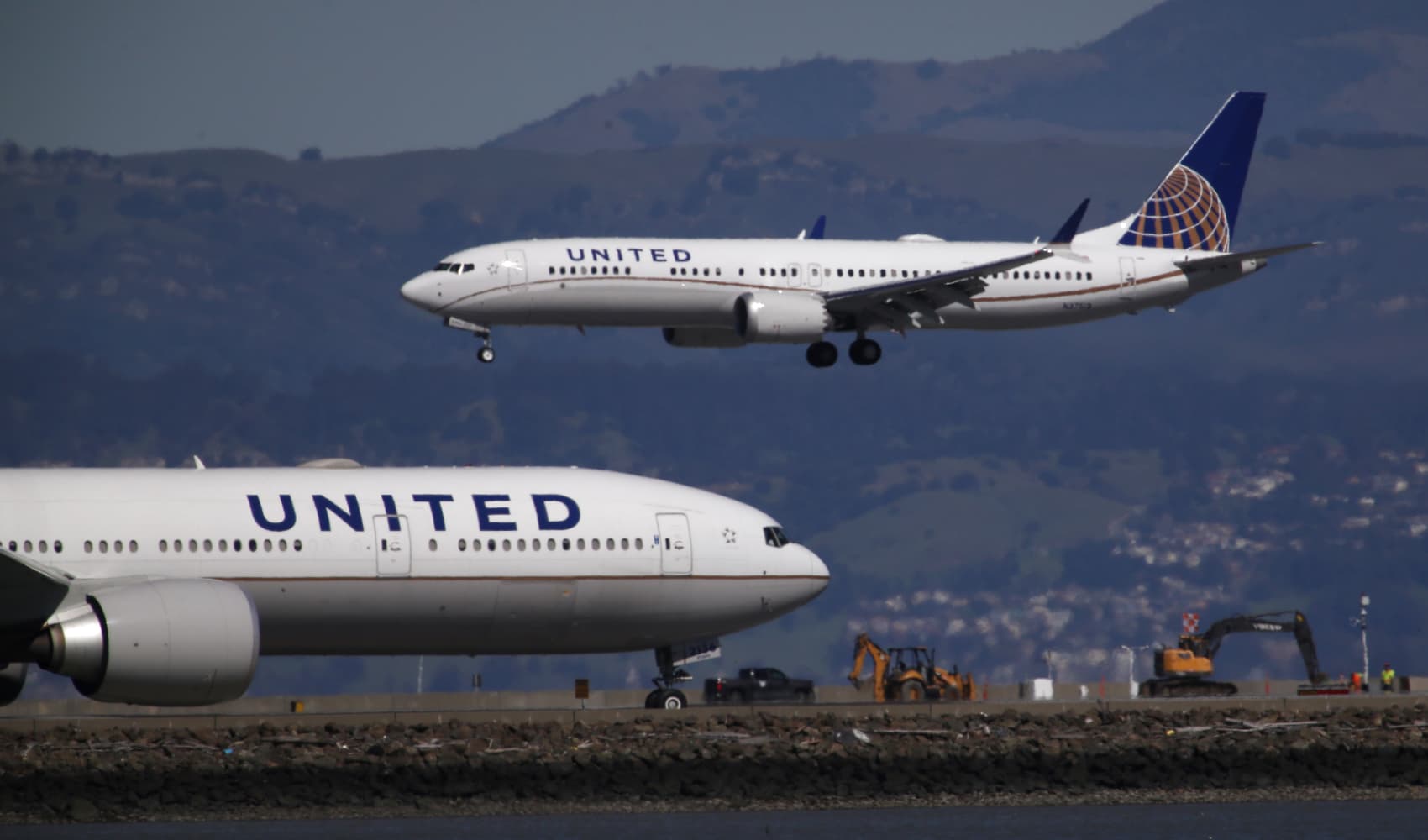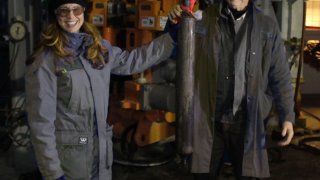
- Currently, there is no permanent nuclear waste depository in the United States. Instead, nuclear waste is stored in dry casks at the locations of currently operating and former nuclear power plants around the country.
- Deep Isolation, wants to utilize the directional drilling technology used in the oil and gas industries to dig long, narrow holes and slide canisters of nuclear waste down them.
- Momentum is growing for the nuclear industry to come up with a way to dispose of its waste because of the growing urgency surrounding climate change.
There is no permanent nuclear waste repository in the United States. Instead, nuclear waste is stored in dry casks at the locations of currently operating and former nuclear power plants around the country.
Deep Isolation, a start-up founded by a daughter-father team in Berkeley, California, is aiming to change that.
Deep Isolation plans to commercialize technology to dig 18-inch-diameter holes deep into the surface of the Earth, then slide radioactive nuclear waste in 14-foot-long canisters down into the deep boreholes. In a deep geologic repository, like a mine or a borehole, nuclear waste can slowly lose its radioactivity over the course of thousands of years without causing harm.
Fixing a key problem for the nuclear industry
Although nuclear energy generates negligible greenhouse gas emissions, many governments and environmental activists don't consider it a source of clean energy because there's no permanent repository to store nuclear waste.
For example, on Feb. 2, when the European Union released its updated taxonomy of sustainable energy sources, it included nuclear energy as a transitional green energy source only if countries can certify safe disposal of the radioactive waste from nuclear reactors (among other requirements).
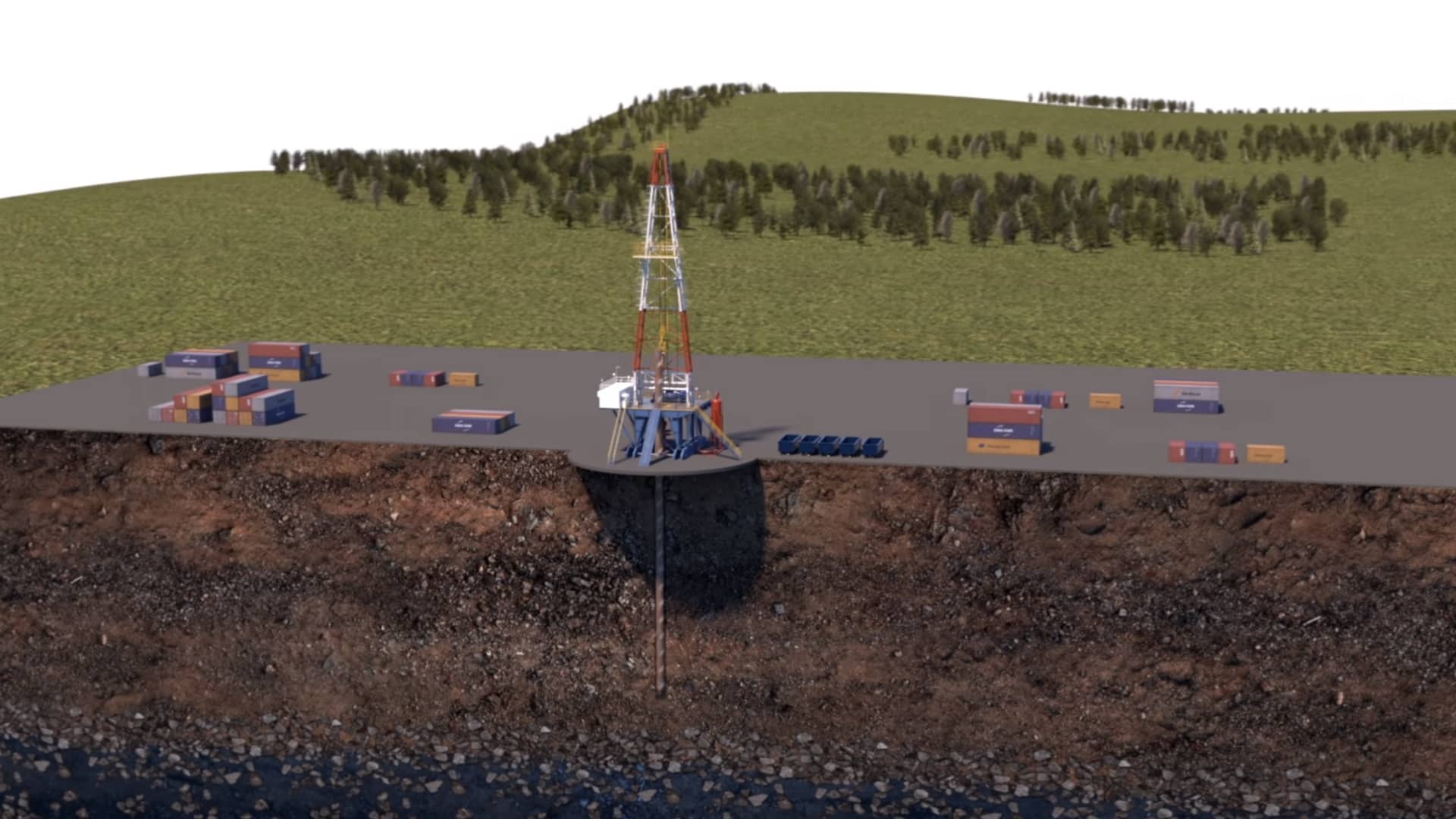
In Europe, several deep geologic repositories are under construction. "Finland is constructing a permanent nuclear waste disposal at Olkiluoto which is expected to be ready in 2023. Sweden is expected to construct a similar kind of nuclear waste disposal starting sometime in the 2020s at Östhammar and France aims to have its own geologic repository for nuclear waste by the 2030s, according to Jonathan Cobb, a spokesperson for the World Nuclear Association.
Money Report
In the United States, Yucca Mountain in Nevada was the front-runner for a geologic disposal for nuclear waste in the United States. But in 2010, President Barack Obama cut funding for Yucca Mountain, satisfying a long-standing effort from a powerful member of Congress from that state, Sen. Harry Reid.
One solution to this stalemate is using directional borehole drilling instead of mines to bury radioactive nuclear waste underground.
Deep Isolation has been pursuing this idea since 2016.
"We didn't invent the idea of using boreholes for disposal — that has been around since the 1980s," CEO Elizabeth Muller told CNBC. "Nobody had thought of using directional drilling. And so that was the key innovation that Deep Isolation brought."
Directional drilling makes it possible to bore holes horizontally as well as vertically. Nuclear waste can't be buried too deep because it can't get too hot or be under too much pressure. The sweet spot is between 1 and 4 kilometers below the earth's surface, Muller said.
"That's a really nice range where you can, depending on the rock type, be very sure that the nuclear waste will be safe, and that you're not getting issues of high pressure and hot rock."
Moving horizontally into a rock for disposal allows more space for burial under the same acreage of land, and also means that the waste won't fall straight down.
"It's like a kid going down the slide and gently coming to a rest at the bottom without crashing into anything," Muller said.
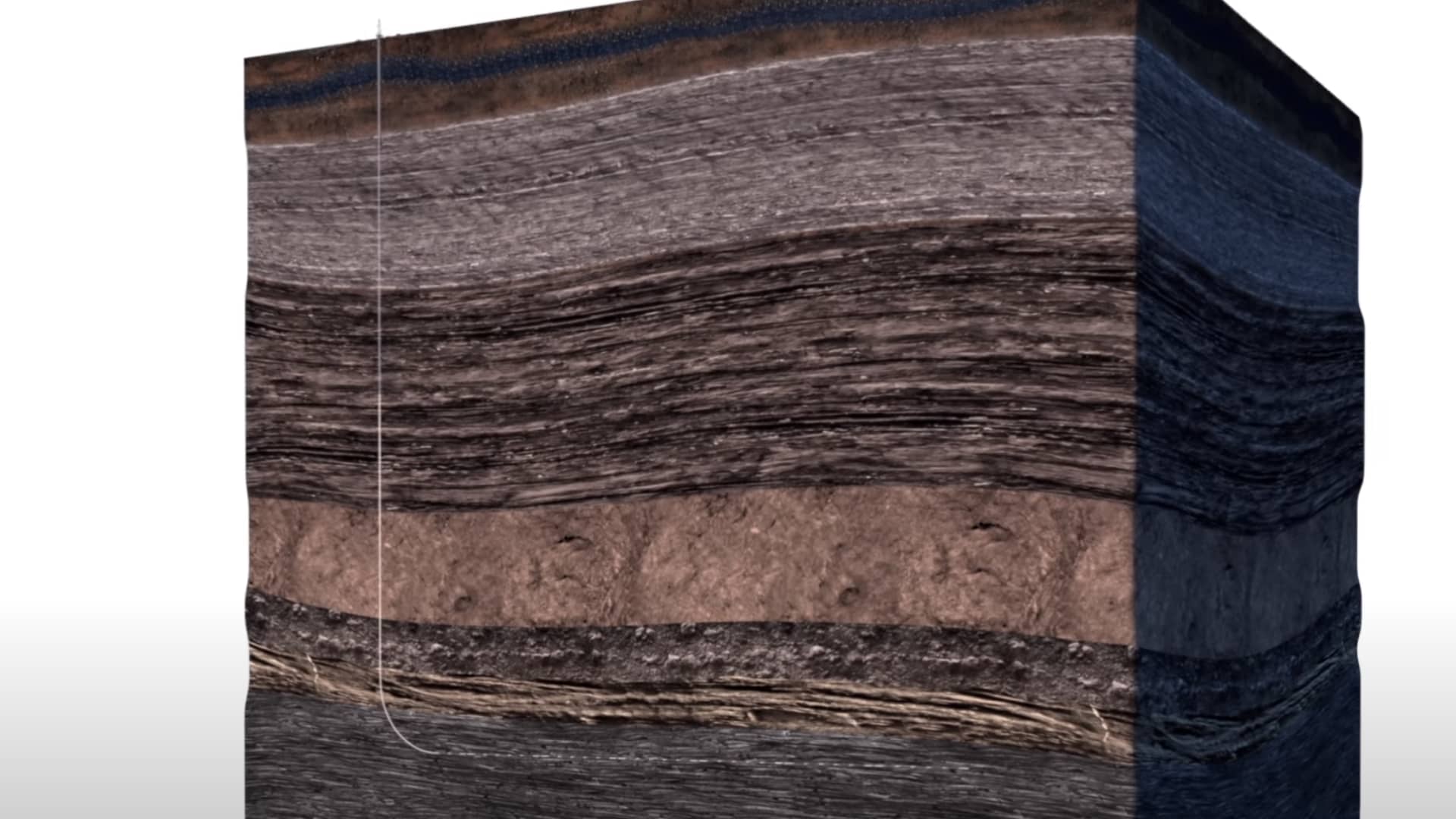
Peter Burns, director of the Center for Sustainable Energy at Notre Dame University, had never heard of Deep Isolation until CNBC contacted him to get his take on the idea. He thinks it has promise.
"Deep borehole disposal of nuclear waste has been recognized as a viable approach for some types of waste for many years," he said. "Deep Isolation is proposing a novel twist on the idea with directional borehole drilling. This appears to have promise as it will allow emplacement in carefully selected geologic horizons so that the geology itself is the protective barrier."
A father-daughter duo digs in
Deep Isolation was started in 2016 by Elizabeth Muller and her father, Richard Muller, a physicist and professor emeritus at the University of California, Berkeley, who serves as chief technology officer.
Before they started Deep Isolation, the Mullers founded a nonprofit called Berkeley Earth, which collects and distributes information about the climate, such as world air pollution data and global temperature data.
"We've been working together for, gosh, close to 15 years now," Elizabeth Muller told CNBC. "He's a scientist, I'm not," Elizabeth Muller said.
After launching Berkeley Earth, the Mullers thought they could have a large impact on slowing global warming by getting China to burn less coal and more natural gas. The Mullers named their company Global Shale, but it didn't get very far. Chinese bureaucracy thwarted their ambitions.
However, that detour taught the Mullers about directional drilling, which oil companies use.
The technology for drilling has improved significantly, according to Elizabeth Muller. "You can drill down a mile deep, and then have a horizontal section that goes multiple miles," Elizabeth Muller said. "And this is all just really quite standard. And you're going into levels of areas of rock where there has been no movement for millions of years."
So far, Deep Isolation has raised $21 million, $20 million of which came in a round closed at the end of 2020 and led by NAC International, a company which transports and stores nuclear fuel.
In March, Deep Isolation was awarded $3.6 million by the Department of Energy as part of a larger, $36 million grant for 11 companies all looking to promote the use of advanced nuclear waste. Deep Isolation is leading the effort to establishing a cannister for minimizing the costs of storing fuel and waste management.
The Department of Energy had been researching the feasibility of using deep boreholes both for nuclear waste disposal and for geothermal research. But opposition from local communities foiled the project and in 2017, the DOE announced it was ending the project.
The government ought to pick its research into boreholes back up, according to Matt Bowen, a research scholar at the Center on Global Energy Policy at Columbia University.
"There hasn't been any disposal of spent nuclear fuel assemblies in deep boreholes anywhere in the world just yet. Many people — myself included — think there is a lot of promise to the deep borehole approach, and that the U.S. government should carry out work in this direction to address research gaps," Bowen told CNBC.
Deep boreholes are cheaper and therefore better suited to countries with smaller quantities of nuclear waste, or where countries have small amounts of high-level nuclear waste that needs to be disposed of, like at the Hanford site in Benton County, Washington.
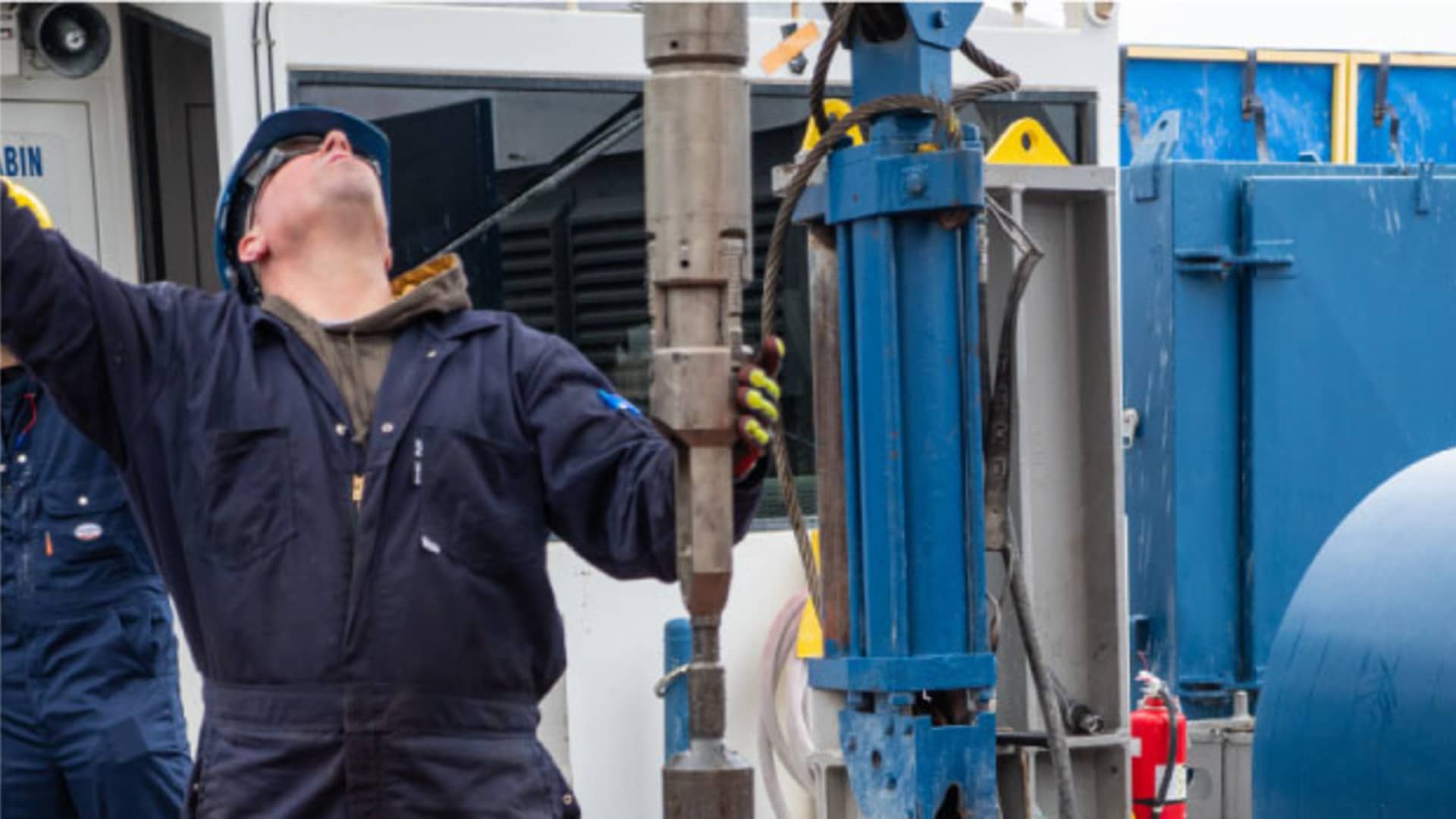
In 2019, Deep Isolation did a test of its borehole drilling technology near Cameron, Texas, putting an empty canister into a bore hole and then retrieving it.
The demonstration was more important for its political success — the technology was already proven, but the start-up managed to gain support of local communities.
"It really demonstrated, I think, that private companies who take a more nimble approach can succeed even when the government has failed again and again," Elizabeth Muller said. "And that's the same approach that we're trying to now bring to actual disposal."
Getting local communities to agree to have a borehole dug in their proximity will continue to be a challenge, according to David W. Shoesmith, a chemistry professor emeritus at Western University in Ontario, who studies nuclear waste disposal. Although he thinks the company and the people associated with Deep Isolaion are "credible," he said the process of lining up many small distributed sites could be "a licensing nightmare."
"The identification and selection of appropriate disposal sites has proven a long and tedious technical process in many countries and has been fraught with political and social issues. Yucca Mountain is only the most extreme example," Shoesmith said.
Five to 10 years out
Deep Isolation has completed project assessment and design work for customers including the nonprofit Electric Power Research Institute, Slovenia, the multinational ERDO Association and Estonia. The next step is drilling a borehole, testing its safety, going through licensing and begin disposing of nuclear waste. That's still five to 10 years out, Muller said.
Nuclear industry watchers are optimistic, even as they don't see Deep Isolation's solution as the answer for all nuclear waste.
"I'm not a geologist, but I see no reason why the approach would not be feasible," said Steve Nesbit, president of the American Nuclear Society. "I don't think it is the complete, one-size-fits-all solution for all radioactive waste disposal needs, but it appears to be well suited for some applications."
Brett Rampal, director of nuclear innovation at the nonprofit Clean Air Task Force, agrees. "More options beyond a deep geologic repository or interim storage may offer a lot of potential opportunities and values," Rampal told CNBC.
The biggest barrier for Deep Isolation is the conservative and cautious nature of the nuclear industry. But pressure is building for the nuclear industry to come up with permanent solutions for how to safely dispose of nuclear waste.
"That is coming because of climate change, global warming, and people wanting to have a future for the nuclear industry, and recognizing that nuclear waste disposal has to happen first if we're going to have a future for the nuclear industry," said Elizabeth Muller.



